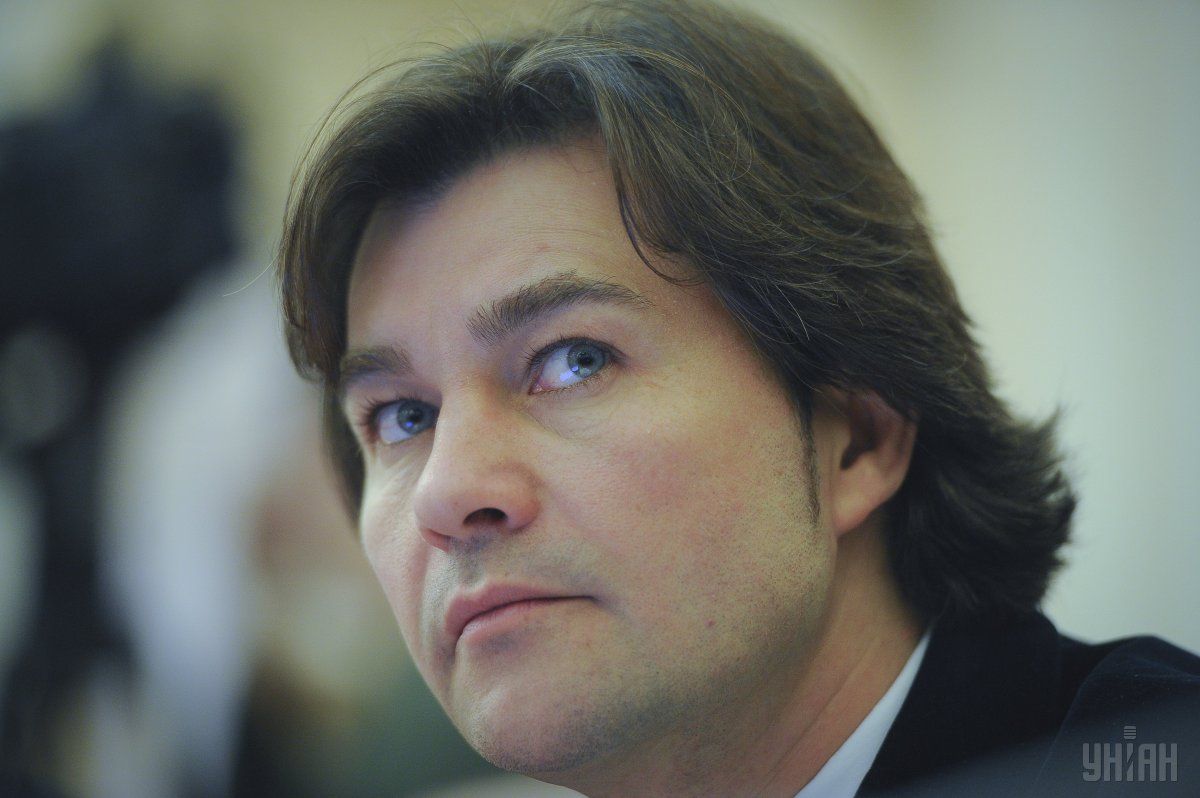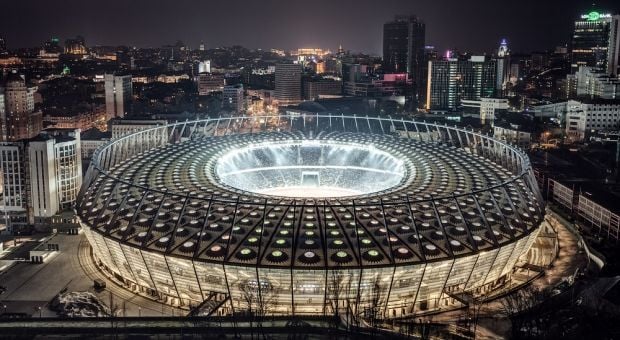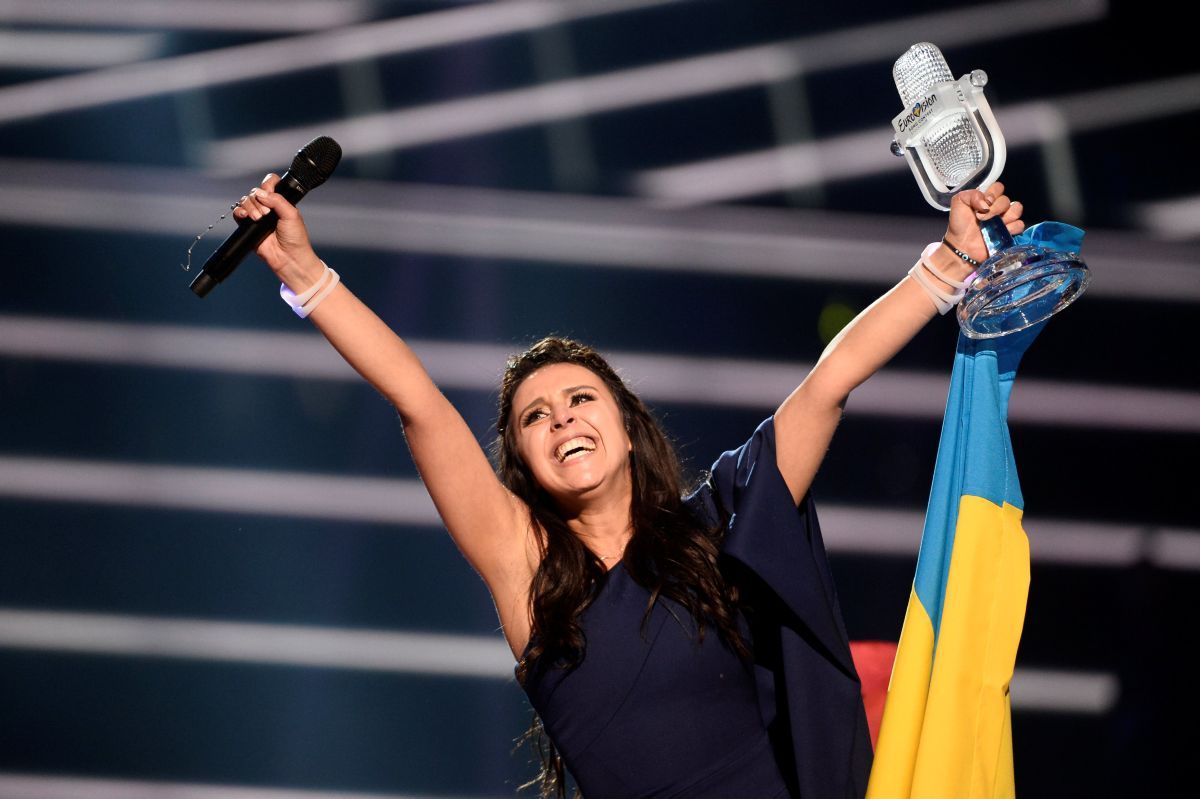
Eurovision 2017: Chance not to be embarrassed
There are more than enough problems regarding the future of Eurovision-2017 in Ukraine. The major one is a venue for the song contest, or rather, a lack thereof.
Eurovision is an annual international song contest held since 1956 between the European Broadcasting Union member states. Ukraine joined the contest in 2003 and as early as in 2004, it won the grand prize along with the right to host the 50th Eurovision Song Contest.
The second win came in 12 years. Ukraine’s representative – Jamala – won in Stockholm in 2016 with the entry titled “1944.” Therefore, the ESC-2017 is to be hosted by Ukraine. And everyone agrees that the country must do it at the highest level.
However, the Minister of Culture Yevhen Nyschuk, quite unexpectedly, said that the country was not ready to host a competition of such scale. He said Lviv was ready to build an arena capable of hosting the event, adding that, in fact, all the cities competing for the right to become host of the ESC-2017, are in the need of new venues to be built.
Host city
Immediately after Jamala’s victory, the municipal authorities of several Ukrainian cities declared readiness to host the Eurovision - 2017. Among them were Dnipro, Kherson, Odesa, Lviv, and Kyiv. The Ukrainian winning singer and the people close to the song contest highlighted the three latter candidates. However, the Government has not yet made up its mind in determining the location. "An open competition should be held among all the candidate cities. It’s not up to the Cabinet to decide who is to host the contest. It’s the cities which need to decide, based on who offers the best conditions," said Prime Minister of Ukraine Volodymyr Groysman.
"Given the great public interest in the contest’s host city ... we understand that we cannot determine alone where the contest is to be held. We decided to give each city a chance to introduce itself, holding a competitive selection," the minister of culture said.
According to Nyschuk, the results of the competition launched June 24 will be announced August 1. The first stage is now ongoing (until July 8) - the candidate cities are to submit applications. Then, between July 8 and 15, the applications will be assessed, and July 18-22, they will be presented at a meeting of the Organizing Committee. After that, the Committee will name two major competitors to take part in a final vote between July 22 and August 1. A special inspection with the participation of the European Broadcasting Union will be the one to take a final decision. This last check will include testing the infrastructure and peculiarities of the implementation of applications according to the selection criteria.

Meanwhile, it seems that the Ukrainians have already come up with a choice of their own.
According to an online survey by 1 + 1 TV channel, the leader is Lviv (with 37% of the votes), the runner-up is Dnipro (24%), third comes Odesa, and Kyiv closes the TOP 4. The results are quite similar in polls across the social networks.
However, no one has yet taken to assess whether these cities are ready to host such a major competition, unfortunately.
Cons and pros of candidate cities
Among the basic criteria for selecting the Eurovision host city is convenient infrastructure, including the airport and a sufficient number of rooms to accommodate foreign guests, and an entertainment program for these tourists. "Last year, Lviv successfully welcomed 2 million visitors, and the numbers tend to increase. This year, up to 300,000 tourists visited the city within several weeks of the Christmas period. Eurovision certainly involves more people, but in general, the city infrastructure allows accepting greater numbers," said deputy mayor of Lviv Andriy Moskalenko.
Kyiv and Odesa try not to lag behind. According to the local statistics offices, each of the cities was visited by 1.5 million tourists in 2015 alone, and there is definitely a far greater number of unaccounted guests. However, Dnipro is hardly visited by any tourists (less than 50,000 people in 2015), although the city can be called the space capital of Ukraine and the center of industrial tourism. Not to mention the fact that Dnipropetrovsk region is the cradle of Petrikivka-style painting. However, extremely low awareness of the region’s sightseeing sites, the ongoing Anti-Terrorist Operation in the neighboring region, as well as hybrid confrontation with Russia on the information battlefield have been scaring off the potential visitors, not only from abroad but also from the other Ukrainian regions.
According to the requirements of Eurovision organizers, the host city must ensure comfortable accommodation of guests. Here, the potential candidate cities experience no problems whatsoever: they have enough hotels and hostels of different price range and categories, with their number increasing with every year and, accordingly, the number of people that can be accommodated.
Another condition for hosting the Eurovision is the availability of transport infrastructure, especially a modern international airport, a place that links the venue with the European cities. In these terms, it is Kyiv and Lviv which are on the winning side as both have airports and efficient commuter infrastructure from the residential neighborhoods to the city center. However, a significant problem of all candidate cities is the virtual lack of high-quality roads in the regions. This is especially characteristic of Odesa region, where in some districts, there are no asphalted roads as such and no commuter network.
But the major setback is that, apparently, no Ukrainian city can boast having a decent venue. According to the requirements, this must be an indoor venue that could accommodate at least 7,000 spectators (preferably – up to 10,000). In addition, an international press center must be able to operate close to or inside the venue with the possibility to host 1,500 journalists. The estimated number of delegations to the Eurovision-2017 ranges from 38 to 43...
Odesa and Dnipro may not get to the finals of the selection in the wake of this requirement. However, neither Kyiv or Lviv are 100% greenlighted in this respect. Of course, the municipal authorities reassure that the problem with the venue will be solved. Kyiv Mayor Vitaly Klitschko emphasizes that he treats with great respect all the applicant cities but he also urges the competitors to “get real.” "Kyiv is the city most prepared and adapted to the event of such level," he said.

He hints that the capital already has potential venues for the competition: namely, Palats Sportu [the Sports Palace], designed for 10,000 spectators (although it needs refurbishing) and the Olympic Stadium with 70,000 seats. However, the latter location is not an indoor venue. Same goes for Lviv, which also has the Arena Lviv Stadium, also an open venue. That is, Ukraine lacks a location that would meet 100% of the Eurovision requirements.
The minister of culture said that Lviv was considering constructing such a venue.
Searching for a venue
Indeed, Lviv authorities say that by 2017, the city could have provided an excellent, comfortable, and modern venue for the Eurovision. "We have long begun building one [venue] for EuroBasket-2015 [the cup was moved to another country], and it is 20% complete. We can finish it and get a great venue. We will be completing the construction anyway, so this will not be a problem. This is a great facility that allows not only the city but the whole country to host this kind of events and receive additional income," says Andriy Moskalenko.
However, the local activists think different. "Holding a competition of such scale requires an indoor venue. We have no such location, and we will just not let the Arena Lviv stadium to be roofed, nor a new venue to be built. Moreover, the city has no such money," says coordinator of the NGO Economic Boycott Movement Oleh Radyk.

Besides, the public believes that Eurovision - 2017 will only allow the entrepreneurs to earn and will lead to embezzlement. "Several million will be siphoned once again, while good entrepreneurs will earn on this. I believe that until the end of a UEFA EURO-2012 probe, Lviv has no moral right to host a song contest," said the activist.
Indeed, it will be difficult to find funds for the construction of a venue or roofing the stadium. According to preliminary estimates, the cost of Eurovision in Ukraine in 2017 will amount to EUR 15 million. This is the money to be spent on preparation and holding the competition. But if we consider the additional costs of building a venue, this will significantly increase the sum.
Ethical beliefs
Another problem that can hinder Lviv (and other Ukrainian cities) on its path to host the Eurovision contest is local intolerance toward sexual minorities.
Considering the fact that the contest is traditionally loved by LGBT community, Jamala urged the Ukrainians to change their attitude to sexual minorities. "A lot of people with non-traditional sexual orientation love this contest. We will try to be as tolerant as possible, we need to really change ourselves a little and look at the world around us from the other perspective," Jamala said.

It should be noted that Kyiv successfully hosted a March of Equality "KyivPride-2016" just recently, almost without any incidents. However, the security of participants was ensured by a large number of law enforcers, with National Police chief Khatia Dekanoidze attending the event in person. Amnesty International has said that KyivPride-2016 was peaceful, noting the actual progress on human rights.
"We've been seeking this day for many years and today we are seeing real progress in human rights. There is still much to be done on the way to society without discrimination, but today we are celebrating our first step," the organization wrote on Facebook.
The human rights advocates praised for this progress the National Police, the Kyiv City State Administration, and the Kyiv mayor.
As for Lviv, its city head Andriy Sadovyi is trying to avoid discussions on this issue, only saying that he would do his best in order to change public attitude toward sexual minorities and prevent provocations during Eurovision-2017.
However, the final say has the European Broadcasting Union. We’ll see whether it turns a blind eye to the applicant cities not meeting all the requirements.
Viktoria Doskich, Tetiana Stezhar

